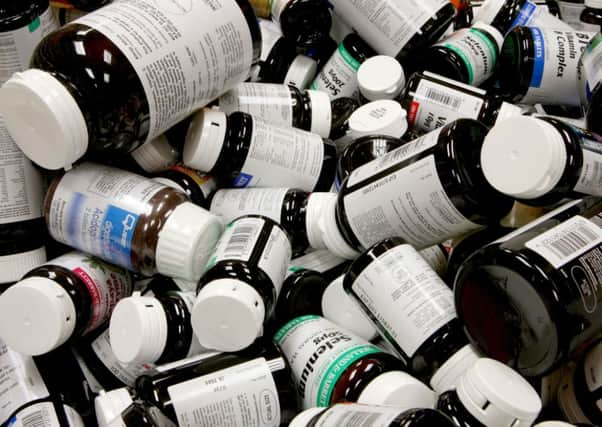Fears for Ayrshire vitamin plant as DSM eyes China


Dutch chemicals group DSM, which employs about 330 at its Dalry factory, is said to be close to reaching a deal to acquire Jiangsu-based Aland, one of China’s largest exporters of the nutrient.
An industry source said DSM – which has about 3,500 staff in China and is the world’s largest producer of vitamins – wants to expand its presence in the fast-growing market in a bid to drive down its manufacturing costs. In 2010, DSM said it was seeking to double its sales in China to $3 billion (£1.8bn) by next year.
Advertisement
Hide AdAdvertisement
Hide AdAnalysts at Citi said DSM has spent more than ¤2.5bn (£2bn) on acquisitions in the past two years. The group bought the Dalry site, which has been making vitamins for more than 50 years, as part of a ¤2.25bn deal in 2003 to acquire the vitamins business of Swiss healthcare giant Roche.
In a research note, Citi said the company had been hit by weakening demand for health supplements amid concerns over their effectiveness and possible side effects.
However, analysts at the broker said the firm was “making a determined effort to improve vitamin pricing” as part of its strategy to “exploit the growing nutrition needs of the global population”.
DSM, based in the city of Heerlen in the Netherlands, began life in 1902 as a mining firm and expanded into the chemical industry in 1919 by producing coke.
Annual results, published in February, show sales from continuing operations grew 5 per cent to ¤9bn last year, boosted by a 14 per cent jump at its nutrition business.
Underlying pre-tax profits grew 18 per cent to ¤1.3bn, despite a “challenging economic environment” and softer-than-expected demand from customers in the food and drink industry and weakness in the US market for dietary supplements and omega-3 fish oils.
DSM concentrated production of vitamin C in Scotland in 2005 after calling a halt on its US manufacturing operations in New Jersey in a bid to cut costs. Most of the world’s output comes from China, which produces more than 100,000 tonnes a year.
Sources said Aland, founded in 1990, accounts for about a fifth of the country’s production with about 20,000 tonnes. That compares with 10,000 tonnes at DSM’s Dalry plant, according to industry insiders.
Advertisement
Hide AdAdvertisement
Hide AdAlong with health supplements, vitamin C – also known as ascorbic acid – is used in the food industry to help dough rise, improve the colour of cured meats and increase the clarity of wine and beer.
DSM, which is listed on the Euronext Stock Exchange in Amsterdam and led by chairman and chief executive Feike Sijbesma, employs 23,500 people around the world.
The Dalry site was established in 1958 to manufacture vitamin A and serves as the head office for two other DSM sites in the UK, at Heanor in Derbyshire and Belfast.
Last year the Ayrshire factory secured a £3.7m grant from Scottish Enterprise to help improve efficiency in the face of growing international competition.
At the time, Scottish Development International chief executive Anne MacColl said: “This is the kind of company we’re here to support.”
DSM, which struck a deal in November to spin off its pharmaceuticals arm into a joint venture controlled by US private equity firm JLL Partners, did not respond to requests for comment.